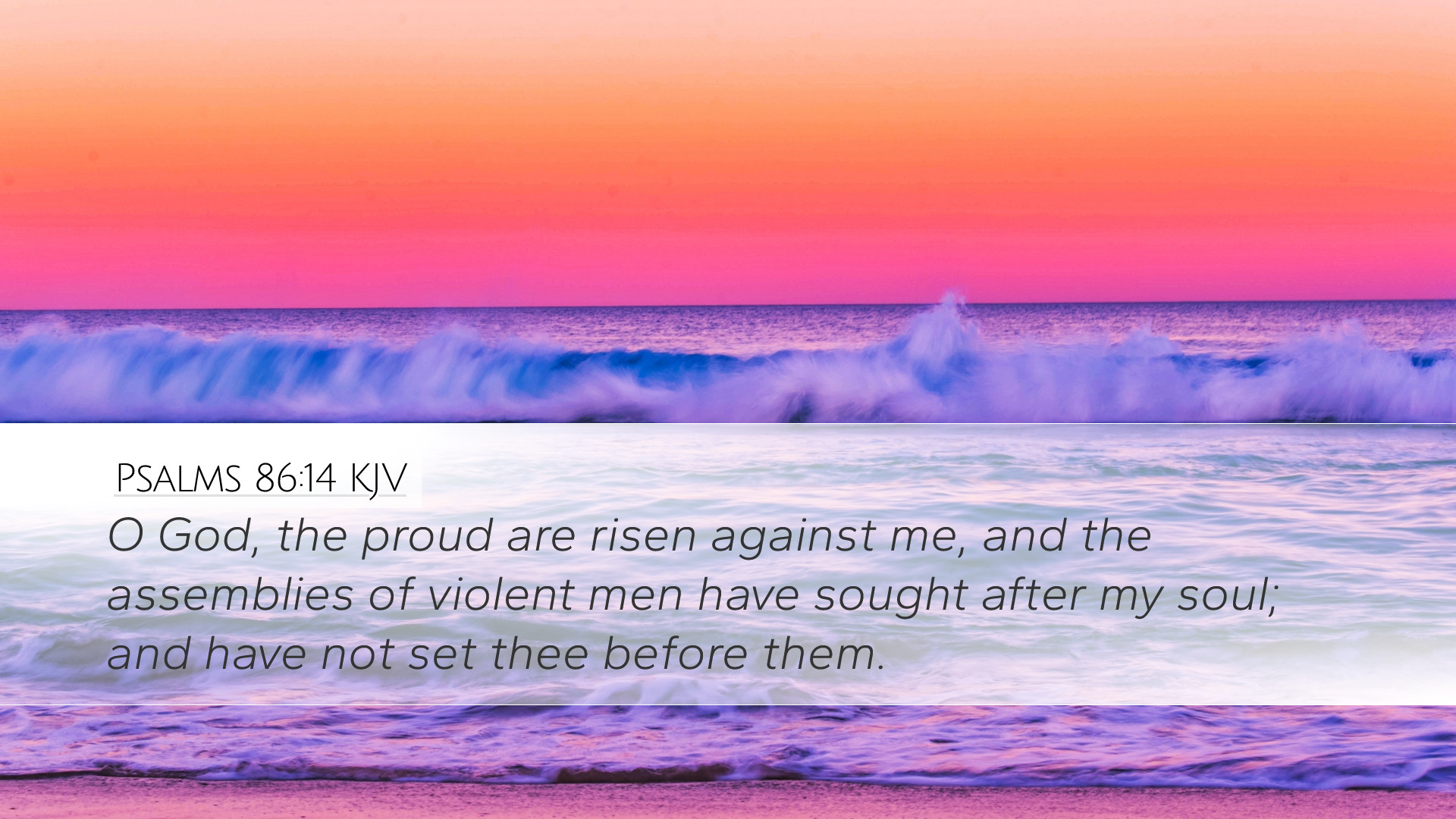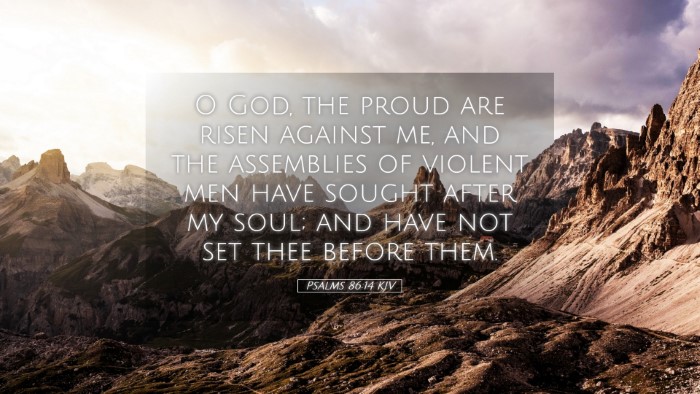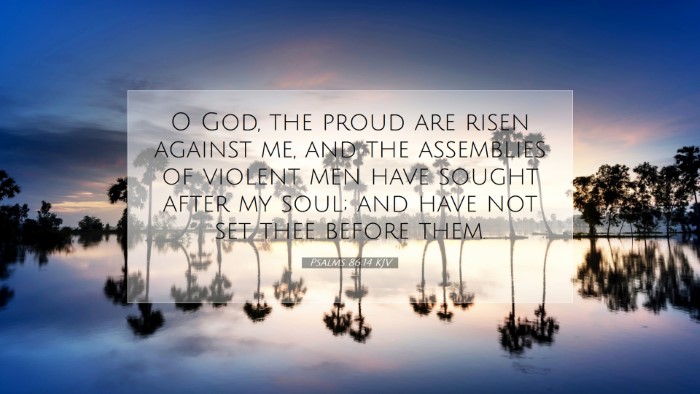Psalms 86:14 Commentary
Verse: Psalms 86:14 - "O God, the proud are risen against me, and the assemblies of violent men have sought after my soul, and have not set thee before them."
Introduction
This verse from the book of Psalms touches on the theme of divine protection against adversarial forces. It provides a rich tapestry for theological reflection, especially concerning the nature of pride, violence, and the believer's reliance on God amidst threats. Scholars and theologians will find it beneficial to delve into the context of this psalm, which is attributed to David, who often faced hostility and betrayal throughout his life.
Exegesis of the Verse
The psalmist opens with an urgent plea to God, highlighting a dual aspect of human opposition: pride and violence. These two traits characterized many of David's enemies, representing a moral decline that threatened the righteous.
1. The Rise of the Proud:
Matthew Henry notes that pride is both a personal and societal condition that leads to rebellion against God. The proud “rise against” not only their fellow man but also challenge the authority of God. This is not merely a personal affront but a corporate action that seeks to undermine God’s moral order.
2. Assemblies of Violent Men:
Henry further elaborates on the “assemblies of violent men,” which can be seen as organized efforts against the faithful. Adam Clarke comments on the communal aspect of such violence in that these men work together in a concerted effort to extinguish the life and hope of the righteous. This highlights the collective nature of evil and the intimidation posed to the believer.
3. The Threat to the Soul:
David's reference to the soul underscores the depth of the conflict. Barnes indicates that the soul is understood in its entirety as the essence of a person, indicating that the attacks are not merely physical but spiritual. This calls to mind the biblical notion of spiritual warfare where the adversary seeks to destroy the holistic well-being of an individual.
Theological Implications
In addressing this verse, several theological themes emerge:
- The Nature of God’s Authority: The juxtaposition of the proud and the acknowledgment of God is compelling. Clarke points out that true authority lies with God and the proud disregard this truth. The psalmist’s call to God to act is essentially a recognition of God’s supremacy over all earthly powers.
- Human Vulnerability: This psalm articulates a sense of vulnerability. David's cry illustrates how, despite his anointing and status, he is not immune to the realities of life’s dangers. This resonates with believers who may feel overwhelmed by similar forces in their own lives.
- The Call for Divine Intervention: The need for divine assistance is a recurring theme in the Psalms. This verse serves as an invitation for God to intervene amidst trials, a reminder for believers to seek God’s help actively.
Pastoral Reflection
For pastors, this psalm offers multiple avenues for application:
- Preaching on the Nature of Pride: There is an opportunity to preach against the sin of pride and its destructive consequences, emphasizing humility as a vital trait for the Christian life.
- Addressing Violence and Injustice: Given the current climate in society, pastoral care can address issues of violence and how the church can respond. This psalm validates the feelings of fear and vulnerability and points to God as a source of refuge.
- Encouraging Prayer for Protection: The verse serves as a template for prayers against various forms of opposition. Leaders can encourage congregations to cry out to God amidst personal and corporate struggles, recognizing the need for divine support.
Conclusion
In summary, Psalms 86:14 captures a poignant moment of distress faced by the psalmist, resonating with the universal struggle against pride and violence. It invites deep reflection on God’s justice and mercy while also serving as a reminder of His ultimate authority. The insights gathered from public domain commentaries provide a robust framework for understanding the spiritual, practical, and pastoral dimensions of this scripture. For students and scholars, the multifaceted nature of this verse encourages further exploration into the dynamics of faith in the face of adversity, enriching their theological discourse.


